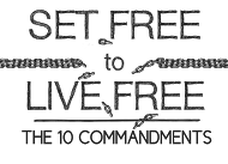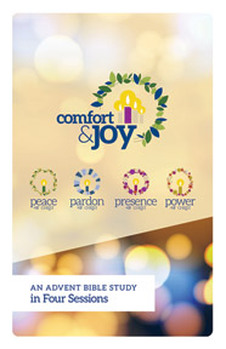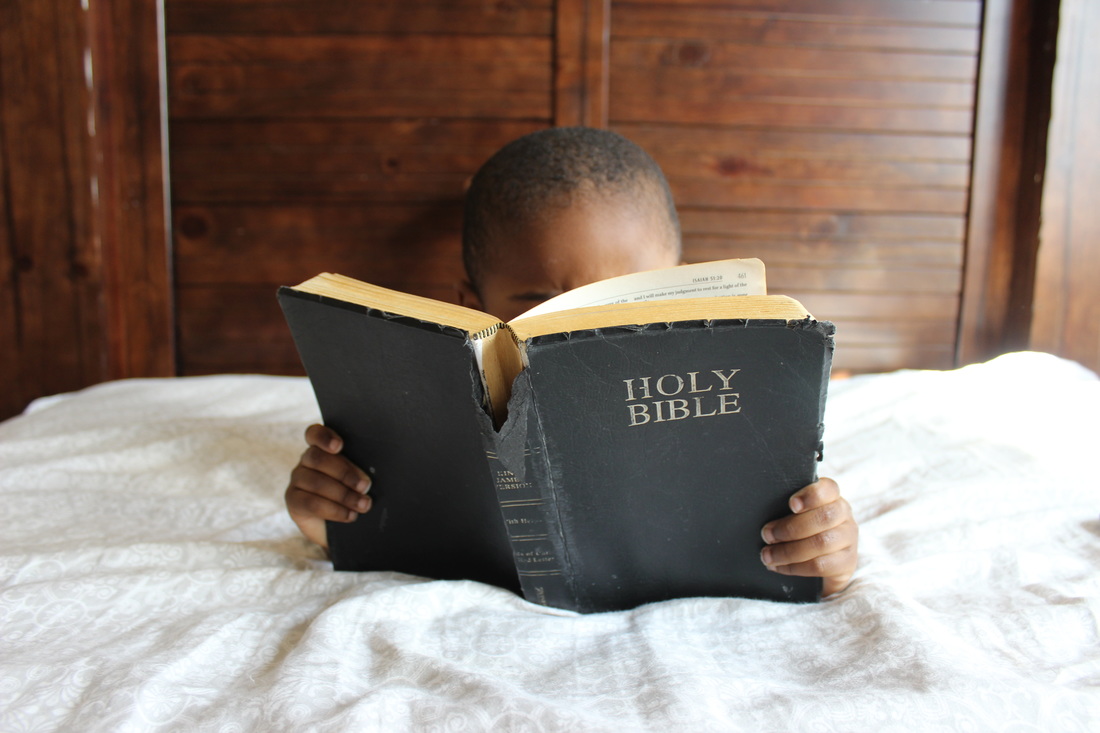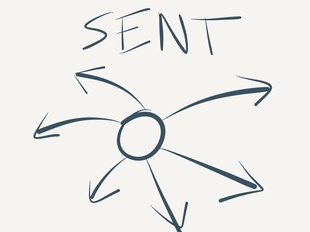|
What if you could invent a religion? You’d probably make its central figures heroic and virtuous. All the characteristics we wish we had. This is true of most ancient religions and mythologies. They are typically a picture of a peoples' aspirations more than they are of reality.
I only know of one religion that is scandalously sober in its assessment of its key leaders. Only the faith named for Jesus, the Christ, has such a scathing view of her adherents. I was on a date with my nine-year-old, Emily. Over ice cream, I quizzed her with a number of questions. I came to, "If you could go anywhere in the world, where would you go?"
"With you, Daddy." Cue the "dad tears." For now, I'm better than Disneyworld and the beach. Too often, we hear that the stated goal of Christianity is heaven. It's not. The Bible can be confusing. Overwhelming. Intimidating. From new Christians to long-time believers, I hear, "How do I read the Bible?"
I have a high view of this text we call the Holy Scriptures. I believe it to be authoritative. Here are some points on how to read the Bible. I didn't make any of them up. They are general guides that Christians have used for generations.  Martin Luther said there is a "baseline" for every Christian - The Ten Commandments, The Creed, and The Lord's Prayer. The following is the first in our "Set Free to Live Free" series as we walk through the Commandments. Years ago, I met an ex-con who spent time at a large penitentiary in Louisiana called Angola. He was convicted for armed robbery. Then while at Angola, he escaped and spent two days on the run in the thick backwoods and Louisiana bayous. The dogs found him, he was returned, and his sentence extended. He entered prison as a man in his 30’s. He left as a man in his 60’s. Although a free man, he didn’t know what to do in open spaces, or how to make his own decisions. He told me, “I still feel like a captive. I don’t know how to live free.”  If you're in a small group, an Advent Bible Study I wrote is now out from Creative Communications. It's a short four-session study. I get no kick backs from the sale of this product :). As a camp counselor in college, the trust walk was a staple of our repertoire. You demonstrate the nature of trust by blindfolding a camper and having one of their friends lead them around only by the sound of their voice. Of course, a 12-year-old loves this opportunity to wreak havoc on their fellow camper. Common thrills were leading someone up and down steps, crossing a log, or leading them through poison ivy. One camper led his friend Billy into a building. Billy wasn’t sure which one it was, but the echo sounded like the dining hall. He was blissfully ignorant until the shrieking of sixth grade girls alerted him to the fact he was in the female side of the bathhouse. Blindfolded, the trust walk requires that you listen. And listen carefully.
There are so many words in our world. We talk, text, and post. We’re always trying to get a word in. If we do listen, we hear a million different voices. What does it really mean to listen? And how do we listen to God? The organizational guru, Stephen Covey wrote about the “scarcity mentality” in his best-selling book The 7 Habits of Highly Effective People: “Most people are deeply scripted in what I call the Scarcity Mentality. They see life as having only so much, as though there were only one pie out there. And if someone were to get a big piece of the pie, it would mean less for everybody else.”
By contrast, he writes of the abundance mentality: “The Abundance Mentality, on the other hand, flows out of a deep inner sense of personal worth and security. It is the paradigm that there is plenty out there and enough to spare for everybody.” What does this mean? A single word has been haunting my pastoral work for a few years. I've devoted considerable time and attention to it, but I think I'll be chewing on this one for years to come, if not the rest of my life. It's a simple word and I believe that it holds tremendous importance for the future of the church. It's an old word, and we're trying to reclaim in in my congregation. The word is sent.
For the seventh year in a row I was the emcee for the Bible Bee at our congregation’s school, Green Park Lutheran. The Bible Bee is always a little nerve-wracking for me because it means I make children cry when I tell them they’re wrong. “That is incorrect. Sit down. Next.” In front of the whole school, they are asked questions like, “How many books are in the New Testament?” (27). “Which biblical book has the longest chapter?” (Psalms, with chapter 119) “Where did God use Elijah to contest the prophets of Baal?” (Mt. Carmel, which probably served as inspiration for the game Candyland.)
I always preface the Bible Bee with a thought about what it means to “know” stuff in the Bible. It’s possible to know, but not really know something. In other words, you can know a lot about a person, but do you really know the person? Facts and information are vital. In any relationship, you need to know the details. Yet beyond knowing “the stuff,” there are also the intangibles of intimate knowledge. Do you know the essence, the character, and the core of the person? The information contained in the Bible contains deeper meaning than quiz questions about the age of Methuselah (969 years old). Scripture gives us God’s track record, his history of dealing with people. We know who he is - really know - by what he does. One of my reoccurring observations about Christians is that we often treat Jesus as a proposition and not a person. Forgive me if you’ve heard my soapbox before. It’s a danger to believe in Jesus as a thing, a collection of ideas, or a system of beliefs. But the Christian faith is about more than information. It’s personal. You may believe all the things about Jesus, but do you believe him? Do you trust him? Do you love him? Aaron won the Bible Bee today. He was one of the shorter contestants. He strained to put his mouth in range of the microphone. He knew the answers. But I also know that he knows the person.  I continue my thought and study on biblical Sabbath. The following is from a sermon preached July 22nd, 2012. At around two or three years old, a child learns the phrase, “I do it.” They are developing independence and individualism. So you go to mow the lawn and he says, “I do it.” The blade starts spinning, he grabs the handle and starts pushing it through the yard. All the while, mom or dad’s hand is gripping the handle and pushing and steering. Or you go to sweep the floor and she says, “I do it.” She goes around, not so much sweeping, but scattering dust bunnies and crumbs. All the while, mom or dad follows to catch all the dirt that was missed. You go to drive, and he says, “I do it.” So he grabs the wheel and steers around the parking lot, squealing through left and right turns. All the while, mom or dad quietly grip the bottom of the steering wheel, braking and accelerating along the way. The child says, “I do it,” but all the while it was really mom or dad. Regardless of age, a human tendency is to say “I do it.” It’s a question of who’s in charge and who’s doing the work. As Lutherans, we have a solid belief that in terms of salvation, it’s all God’s work – not “I do it.” But we leave God’s work there – strictly to the realm of salvation and spiritual things. “God is in charge of my salvation, but everything else is mine.” In doing this, we clearly separate our work and God’s work. The result is an increasingly busy, frantic, exhausted society. The pace of life is blistering. I’ve observed an epidemic of people who work too much and rest too little. People who are: Over-committed. Over-programmed. Over-worked. Stressed out. Burned out. Strung out. You have trouble saying “no.” You feel you have to do more or you’ll left behind. Your kids have to do more sports, more camps, more classes or they’ll be a failure. You have to keep busy or you’ll feel lazy. I see a people oppressed by their frantic pace, and over-crammed schedules, and unrelenting work. Oppressive calendars, oppressive to-do lists, oppressive gushes of information and media. I do it. In such a franticly overworked society, the third commandment is increasingly radical. “Remember the Sabbath day to keep it holy. Six days you shall labor, and do all your work, but the seventh day is a Sabbath to the LORD your God.” The word Sabbath means “to cease” or “stop.” The significance of observing the Sabbath is that it forces us to see the limits of “I do it.” Work is not bad. But Sabbath tells us, “Your work has limits.” You can work hard six days throughout the week, but on seventh day, you stop. You rest. And you realize that the world goes on without you. Sabbath says, “Your work has limits. Stop for a day, and see that God has been working all along. HE has been creating. HE has been providing. You thought it was ‘I do it,’ when all the while, HE did it.” We often separate God’s work and our work. “He does the salvation and spiritual stuff. I do everything else.” This attitude dismisses God’s work in our everyday life. There is a mysterious intersection with God’s work and ours; where we work, and strive, and toil, and at the same time God is at work in us and through us. He gives us the work, and guides the work. It’s like gardening. You till and fertilize and water. You sweat as you pull the weeds. And then you go to bed, and when you wake up, the bean plants are flowering. The lettuce got a little bigger. The tomatoes turned green to orange to red. And you had nothing to do with it. Wendell Berry writes of this phenomenon. He says, “Great work is done while we’re asleep.” Or it’s like pregnancy. We all know how babies are made. Certainly two people are involved. And yet, God mysteriously goes about his work. Fingernails are formed. A brain develops. Little feet with little toes. And mother and father have nothing to do with how the child forms. It’s left to grace. Great work is done while we’re asleep. Great work, because GOD DOES IT. In Mark 6:31, Jesus told his disciples, “Come away to a desolate place and rest a while.” They needed rest from their work, but the crowds of people would not leave them alone. When it was late, the disciples noticed a logistical problem. A small stadium full of people, and no concessions. Jesus said, “You give them something to eat.” They recognized the limits of their ability. “I do it” won’t cut it. You’d need almost a years’ salary to buy enough food for all these people. But when no work of ours will suffice, God’s work becomes evident. Jesus provides. Five loaves of bread. Two fish. 5 + 2 = 7. The Sabbath day is the seventh day. Seven is the number of completion, wholeness, fullness. Elsewhere in Scripture, Jesus refers to himself as “Lord of the Sabbath.” HE is Sabbath in a person. There is a limit to your work, to “I do it.” And when you recognize this, you see that he it’s not your work, but HIS work. HE is rest. He is relief. HE is power. HE is peace. He is provision. All of creation is HIS work. Under HIS rule. Subject to HIS Lordship. And when the humans said, “I do it,” he didn’t say, “Well, you got yourself into this mess, you can get yourself out. No, the Creator chose to redeem. He said “I will do it.” And HE invaded broken humanity. HE suffered the consequences of our bloated arrogance. HE has compassion because we are sheep without a shepherd. HE shackled death. HE stands as the King. Him, not me. HIS work, not mine. His control. His will. His love. His provision. His Sabbath. His rest. His work. In a person. How do you live and work in a way that acknowledges God’s work? That trusts his control? How do you observe the Sabbath beyond simply “going to church”? Three suggestions (not laws):
|
JOIN My Tribe
|









